第146章 CHAPTER XXII(1)
PROPRIETORS OF THE MODERN SCHOOL
A Russian Petit Maitre--His House and Surroundings--Abortive Attempts to Improve Agriculture and the Condition of the Serfs-- A
Comparison--A "Liberal" Tchinovnik--His Idea of Progress--A Justice of the Peace--His Opinion of Russian Literature, Tchinovniks, and Petits Maitres--His Supposed and Real Character--An Extreme Radical--Disorders in the Universities--Administrative Procedure--
Russia's Capacity for Accomplishing Political and Social Evolutions--A Court Dignitary in his Country House.
Hitherto I have presented to the reader old-fashioned types which were common enough thirty years ago, when I first resided in Russia, but which are rapidly disappearing. Let me now present a few of the modern school.
In the same district as Ivan Ivan'itch and the General lives Victor Alexandr'itch L----. As we approach his house we can at once perceive that he differs from the majority of his neighbours. The gate is painted and moves easily on its hinges, the fence is in good repair, the short avenue leading up to the front door is well kept, and in the garden we can perceive at a glance that more attention is paid to flowers than to vegetables. The house is of wood, and not large, but it has some architectural pretensions in the form of a great, pseudo-Doric wooden portico that covers three-
fourths of the fa鏰de. In the interior we remark everywhere the influence of Western civilisation. Victor Alexandr'itch is by no means richer than Ivan Ivan'itch, but his rooms are much more luxuriously furnished. The furniture is of a lighter model, more comfortable, and in a much better state of preservation. Instead of the bare, scantily furnished sitting-room, with the old-
fashioned barrel-organ which played only six airs, we find an elegant drawing-room, with a piano by one of the most approved makers, and numerous articles of foreign manufacture, comprising a small buhl table and two bits of genuine old Wedgwood. The servants are clean, and dressed in European costume. The master, too, is very different in appearance. He pays great attention to his toilette, wearing a dressing-gown only in the early morning, and a fashionable lounging coat during the rest of the day. The Turkish pipes which his grandfather loved he holds in abhorrence, and habitually smokes cigarettes. With his wife and daughters he always speaks French, and calls them by French or English names.
But the part of the house which most strikingly illustrates the difference between old and new is "le cabinet de monsieur." In the cabinet of Ivan Ivan'itch the furniture consists of a broad sofa which serves as a bed, a few deal chairs, and a clumsy deal table, on which are generally to be found a bundle of greasy papers, an old chipped ink-bottle, a pen, and a calendar. The cabinet of Victor Alexandr'itch has an entirely different appearance. It is small, but at once comfortable and elegant. The principal objects which it contains are a library-table, with ink-stand, presse-
papier, paper-knives, and other articles in keeping, and in the opposite corner a large bookcase. The collection of books is remarkable, not from the number of volumes or the presence of rare editions, but from the variety of the subjects. History, art, fiction, the drama, political economy, and agriculture are represented in about equal proportions. Some of the works are in Russian, others in German, a large number in French, and a few in Italian. The collection illustrates the former life and present occupations of the owner.
The father of Victor Alexandr'itch was a landed proprietor who had made a successful career in the civil service, and desired that his son should follow the same profession. For this purpose Victor was first carefully trained at home, and then sent to the University of Moscow, where he spent four years as a student of law. From the University he passed to the Ministry of the Interior in St.
Petersburg, but he found the monotonous routine of official life not at all suited to his taste, and very soon sent in his resignation. The death of his father had made him proprietor of an estate, and thither he retired, hoping to find there plenty of occupation more congenial than the writing of official papers.
At the University of Moscow he had attended lectures on history and philosophy, and had got through a large amount of desultory reading. The chief result of his studies was the acquisition of many ill-digested general principles, and certain vague, generous, humanitarian aspirations. With this intellectual capital he hoped to lead a useful life in the country. When he had repaired and furnished the house he set himself to improve the estate. In the course of his promiscuous reading he had stumbled on some descriptions of English and Tuscan agriculture, and had there learned what wonders might be effected by a rational system of farming. Why should not Russia follow the example of England and Tuscany? By proper drainage, plentiful manure, good ploughs, and the cultivation of artificial grasses, the production might be multiplied tenfold; and by the introduction of agricultural machines the manual labour might be greatly diminished. All this seemed as simple as a sum in arithmetic, and Victor Alexandr'itch, more scholarum rei familiaris ignarus, without a moment's hesitation expended his ready money in procuring from England a threshing-machine, ploughs, harrows, and other implements of the newest model.
The arrival of these was an event that was long remembered. The peasants examined them with attention, not unmixed with wonder, but said nothing. When the master explained to them the advantages of the new instruments, they still remained silent. Only one old man, gazing at the threshing-machine, remarked, in an audible "aside,"